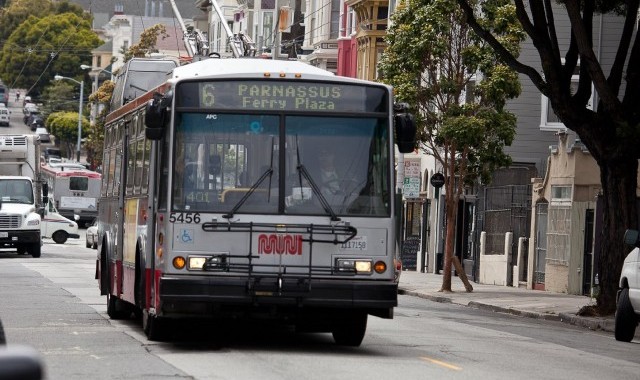The Municipal Transportation Agency's Board of Directors voted unanimously Tuesday to approve a five-year contract with Illinois-based SPX Genfare for the fareboxes and their installation.
Muni's current fareboxes were installed a quarter of a century ago. Although the fareboxes were refurbished in 2008, Muni officials say the devices are nearing the end of their useful lives.
The changes will not affect the growing number of Muni riders who use Clipper cards. Around 45 percent of the agency's passengers use the card that most other local transit systems take, Rose said. But between 12 percent and 14 percent of Muni riders still pay with cash.
Rider advocates say the system needs to move faster toward a digital fare system.
"In other cities around the world, those transit systems were able to transition riders off of cash," said Mark Ballew, a board member of transit advocacy group Rescue Muni.
Last year the agency launched a service that allows passengers to buy and use tickets using their smartphones. Ballew said Clipper and the new service, MuniMobile, are the kinds of programs that decrease boarding times.
"With digital payment systems ... riders can pay and board on both doors, increasing Muni's ability to deliver service," Ballew said in an email.
The new fareboxes will mean the paper packets that operators use to hand out 90-minute transfers would disappear. Union officials who represent Muni operators have complained in the past that the packets place drivers in danger, Rose said. In some cases people have stolen the books when drivers aren't looking.
The machines will also help transit planners learn more about the demographics of some of their passengers. Muni officials say the fareboxes will provide better revenue data and help them learn which riders take certain bus and light-rail lines.
"These new fareboxes will be able to show who's still paying with cash on specific routes," Rose said. "We'll be able to see how much people are paying, where they are in their route, what routes they're taking and this will help us communicate with our riders more efficiently."
Now that the contract has been approved by the SFMTA board, the Board of Supervisors is expected to vote on it next month. If the supes approve, the agency plans to start a public awareness campaign about the new fareboxes in September.
